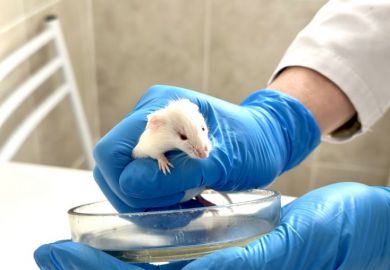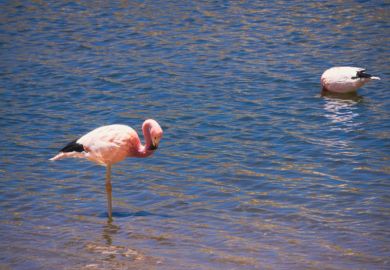As On the Origin of Species was published more than 150 years ago, you would be forgiven for assuming that questions about the fundamentals of Darwinian evolution have long since been resolved within the scientific community. However, argues Stephen Rothman, there is still plenty of potential for debate. In The Paradox of Evolution, he examines the role that natural selection plays in shaping reproduction, and concludes that the diverse and complex reproductive mechanisms that we see in nature result not from natural selection but rather from alternative biological forces with a purpose that opposes that of natural selection.
He begins by posing a fair and profound question: “Why in God’s (or Darwin’s) name do we have children?” It is a question that I have been contemplating myself recently, just days away from the arrival of a new addition to our family. Rothman claims that the question of how reproductive mechanisms evolve is a neglected area in evolutionary biology. However, I would disagree. Although the evolution of specific reproductive mechanisms in many organisms may still be misunderstood (there are a lot of organisms to consider), the question of the evolution of sex and reproduction has consumed many great evolutionary biologists both past and present, and there is a plethora of convincing data that highlight the natural conditions under which sex provides a fitness advantage. Perhaps Rothman was not concerned with this area of reproductive evolution, and wanted the reader to consider reproduction’s more physiological aspects. However, here – and in other places within the book – omission of these studies seems to cloud rather than clarify many of his arguments.
It is the biological purpose of natural selection versus reproduction in which a paradox can be found, Rothman reasons. Mechanisms of reproduction have the purpose of ensuring the future of life, sometimes at the cost of individual survival, whereas the purpose of any adaptation moulded by natural selection is solely individual survival. But this statement depends on the level of selection being considered; at the level of the gene, the purposes of both reproduction and natural selection are aligned, namely survival of the gene.
In addressing a profound question in biology, namely the purpose of life, Rothman considers two counteracting forces of nature. In the present, natural selection fine-tunes individuals to maximise their survival potential, and acts destructively, by selecting the strongest and removing the weakest. In contrast, reproduction is a creative force that has no concern with the present, and acts only to promote the survival of future generations. This is the crux of the paradox that Rothman identifies; however, its consideration demands a philosophical approach that I am not sure adds to our advancement and understanding of fundamental evolutionary processes.
What is more, this approach often fails to capture the diversity of life, presenting an animal-centric view that does not represent the vast majority of living organisms. In his final words, Rothman describes this book as a “murder mystery with the killer being none other than death itself” – where natural selection does death’s bidding and reproduction follows behind trying to foil its plans. While I may not agree with all its arguments, this book’s alternative perspective is compellingly thought-provoking.
Tiffany Taylor is teaching fellow in biological sciences, University of Reading.
The Paradox of Evolution: The Strange Relationship between Natural Selection and Reproduction
By Stephen Rothman
Prometheus, 248pp, £12.99
ISBN 9781633880726
Published 1 December 2015
Register to continue
Why register?
- Registration is free and only takes a moment
- Once registered, you can read 3 articles a month
- Sign up for our newsletter
Subscribe
Or subscribe for unlimited access to:
- Unlimited access to news, views, insights & reviews
- Digital editions
- Digital access to THE’s university and college rankings analysis
Already registered or a current subscriber?




